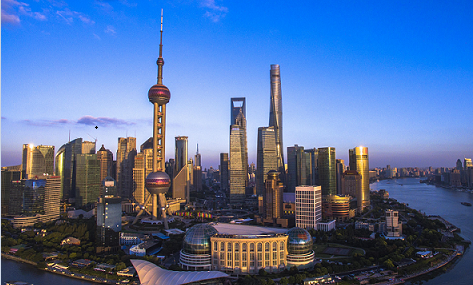The historian Wang Gungwu recently observed that, whereas the West thinks in terms of ideologies, China has long thought in terms of systems. In today’s age of rapid and profound change – characterized, in particular, by a fundamental shift in America’s attitude toward the rest of the world – China’s system reform approach is being put to the test.
Under President Donald Trump, the United States seems to have abandoned its seven-decade-old commitment to the rules-based multilateral order, embracing bilateral deal-making instead, guided by an “America First” agenda. This includes a willingness to make just about any excuse for unilateral action, such as large trade tariffs, against other countries, in order to please domestic constituencies.
This approach adds a new layer of uncertainty to any negotiation, not least because the Trump administration’s decision to change the global rules of the game is not particularly promising for the US itself. After all, US-owned companies, which have long extracted the most value from global supply chains, will be the biggest casualties of a trade conflict.
Moreover, as the US has discovered during its long history as the world’s biggest market, consumption and soft power go hand in hand. Yet, today, the US faces severe constraints when it comes to stimulating domestic consumption, rooted in factors like massive inequality, fiscal and debt constraints, political polarization, and the imperative to normalize monetary policy.
For China, the situation is also challenging, not least because the West now regards virtually all of its domestic policies as geostrategic machinations. But China’s leaders do have the tools to overcome the obstacles ahead. The most important tool is precisely the systemic mindset that has shaped decision-making for millennia, protecting the country’s complex economic, social, and political arrangements from internal corrosion and external threats.
Consider the reforms undertaken since 2012. At the Communist Party of China’s 18th National Congress, China’s leaders recognized that the demographic dividend was fading, owing to population aging, and that the “opening up” dividend (arising from increased external trade and investment) was losing value as well.
Addressing this challenge required giving the market a more decisive role in resource allocation. After all, according to neoliberal ideology, all other things being equal, the market would naturally optimize economic processes. All the state had to do was ensure that those other things were indeed equal. This demanded, first, the eradication of systemic corruption and, second, structural reforms to address social imbalances that threatened stability and growth.
So President Xi Jinping launched an anti-corruption campaign, and the government invested in areas like infrastructure, research and development, technological education and re-skilling, and the social safety net. Such reforms were intended to protect China’s own systemic stability, while contributing to the growth of the entire global system.
Unfortunately, China’s efforts are now increasingly being characterized as “mercantilist” and “predatory,” providing an excuse for punitive measures, like Trump’s tariffs. These new external pressures prompted China to adjust its reform momentum in order to reduce its economy’s vulnerability to disruptions in the supply of critical technology, resources, and finance.
But China’s adjustment faces a dilemma. A slowdown in reforms may negatively influence the economy and escalate the lose-lose trade war. To withstand the current stress test, China may instead need to accelerate its reforms to reduce internal imbalances, increase consumption, and contribute to global demand and stability.
This means eliminating excess capacity, closing down polluting industries, and addressing the large volume of non-performing loans – all while continuing the fight against corruption. It also means tapping the massive consumption potential of China’s internal market, which includes the world’s largest and highest-saving middle class.

Critically, because the external trade challenge affects the coastal areas more than the inland areas, structural adjustment policies need to be tailored to accommodate different local conditions. Contrary to the dictates of neoliberal ideology, a one-size-fits-all “best practice” approach cannot bring better results than localized “best fit” policies.
This is confirmed by history: globally, the best-performing economies, like the US, Hong Kong, Singapore, and many Scandinavian economies, have been those that adapted universal principles to develop policies that reflect national, regional, and local conditions. This is also true of China during its reform era, where development has been driven largely by local-level policy innovation and gradual adaptation to global standards and rules.
Chinese provinces and cities have been empowered to experiment with diverse approaches to development and to adjust bureaucratic structures and government interventions to address local and global market conditions. Competition among fast-growing cities tapping their own comparative advantages – for example, those of Hong Kong and the Greater Bay Area, including Shenzhen, Zhuhai, Guangzhou, Foshan, and Dongguan – has generated system-wide resources in capital stock, income flow, know-how and institutional innovation, which were used to address legacy problems in the less dynamic regions.
In this age of complex and dynamic change, China needs to sustain the systemic but localized approach that has enabled its unprecedented growth and development, and that means continuing to promote constant adaptation at the national, provincial, and municipal levels. The one proven systemic response to development challenges has been to allow internal competition across regions and enterprises to boost external competitiveness. That will remain true, no matter how unpredictable US policy becomes.















